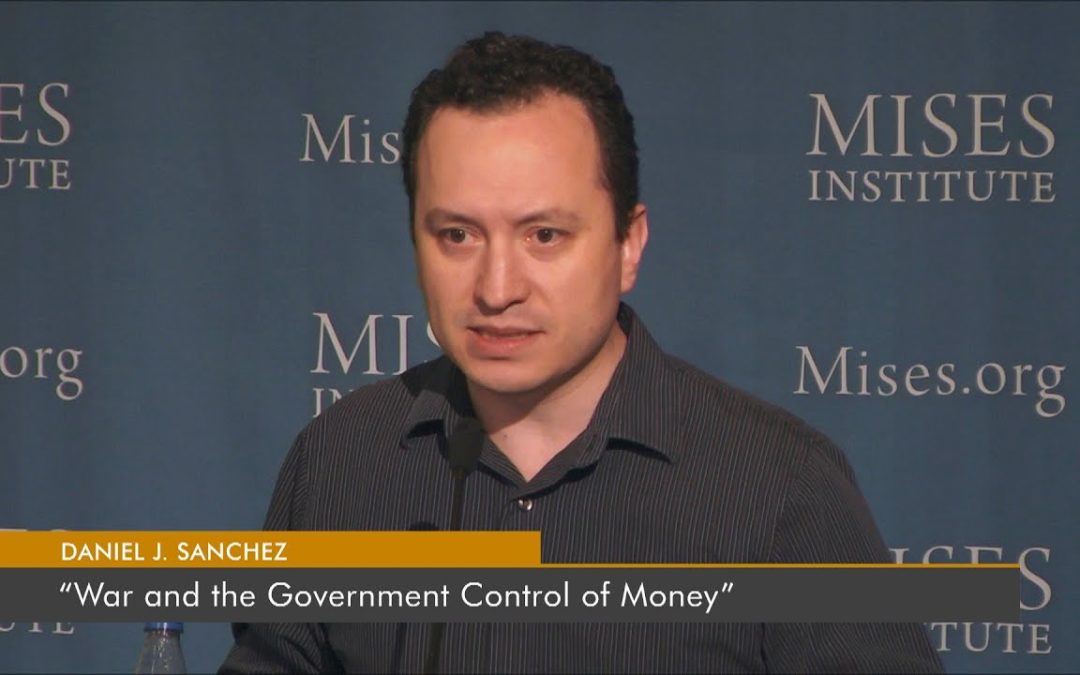Israeli President's Direct Call to Genocide Annotated. https://t.co/RDcNV7DEvk
— Scott Horton (@scotthortonshow) October 14, 2023
Blog
Revisiting The Bourne Legacy (Yet Again…): Lessons for Our World
I have now watched The Bourne Legacy at least six times. You should watch it, too. Here’s my essay on the relevance of the fictional world depicted to the one in which we live:
In conclusion: Abolish the Black Budget.
Who What Why Interview: Rethinking COVID-19 Narratives
In this 45-minute interview, Jeff Schechtman of Who What Why? and Laurie Calhoun discuss many aspects and implications of the COVID-19 pandemic, including prospects for the future, drawing on observations and arguments made in Questioning the COVID Company Line: Critical Thinking in Hysterical Times. A complete transcript of the interview is provided.
It’s Back! Rethinking COVID-19 Narratives: The Media, Fauci, and the Fear Factor

Who is More “Selfish”?
War is ultimately about collectivism. During crisis, individuality fades in favor of team effort. During violent conflict, particularly between governments, the world becomes, especially it seems for Americans, a giant, bloody football game: our team versus theirs, us versus them, good versus evil. Go, team, go. This, of course, leads to all sorts of fallacious thinking, such as “Death to them is not like death to us,” “We have to let them bomb us so they won’t know we’ve broken the codes,” “Using nuclear bombs on civilians saved lives,” “Everything changed on September 11th,” and “Don’t you understand that we are at war?” The last two are usually intended as a blanket permission slip for the state to break any law, tell any lie, and kill any person — so long as it’s to protect “us” from “them.”
– Scott Horton, Individualism vs. War
Capitalism has been called a system of greed — yet it is the system that raised the standard of living of its poorest citizens to heights no collectivist system has ever begun to equal, and no tribal gang can conceive of.
– Ayn Rand, “Global Balkanization,” from a lecture given at Boston’s Ford Hall Forum, Apr. 1977.
This idea that individuals can be and should be sacrificed for the “greater good” is the essence of the fascist/socialist/collectivist philosophy… For many intellectuals, the attractiveness of socialism is that it is “rational”; it is a “planned” economy, planned by people like them.
– Thomas J. DiLorenzo, Ph.D., The Problem with Socialism (2016, Regnery Publishing), pp. 68, 121.
TOP NEW RELEASE in Philosophy Criticism: Questioning the COVID Company Line!

Read Questioning the COVID Company Line: Critical Thinking in Hysterical Times to find out a bunch of stuff which you may not have known, including:
- “Listen to The Science!” embodies a logical fallacy.
- Vaccine technology depends upon the ability of the natural immune system to work. Professions of ignorance as to whether people who already recovered from the virus needed the shots revealed the true agenda of the spokespersons for companies which persuaded many governments to impose universal mandates.
- The WHO (World Health Organization) and CDC (Centers for Disease Control and Prevention) changed the definitions of the terms ‘pandemic’ and ‘vaccine’ (receipts provided). These new definitions were essential to the multiyear psyop perpetrated upon the people of the world in the name of public health by gaslighting government officials.
- The pharma-captured FDA (Food and Drug Administration) was instrumental in what became the opioid crisis and drug overdose epidemic. The very same agency played a decisive role in the implementation of draconian policies intended to maximize uptake of the COVID shots, even among cohorts not included in the trials used to secure Emergency Use Authorization (EUA), most notably: children, pregnant women, and persons who had already recovered from the virus.
- COVID shot mandates violated the requirement of informed consent needed for the ethical practice of medicine and, shockingly, the Nuremberg Conventions against nonconsensual human experimentation.
- The COVID shots and boosters were added to the Childhood Immunization schedule just in time to protect the manufacturers in perpetuity from lawsuits (thanks to the PREP act) once the EUA expired.
- Medical ethics was inverted throughout the COVID crisis, with public officials issuing broad prescriptions intended not to help patients but to maximize not only pharma profits but also data collection, seizing the opportunity to conduct massive trials of a new mRNA technology which never before made it past the animal trials to be tested on human beings.
- The same propaganda playbook used to galvanize and maintain support for the devastating Global War on Terror was deployed against the populace throughout the Coronapocalypse.
- and much, much more…

Will This Man Prevent World War Three?
In April, Tucker Carlson, the most popular show host in American news media, was unceremoniously fired from Fox News.
He has since taken to the platform “X,” formerly Twitter, to continue publishing his own program.
Last week, during the first Republican primary debates, Tucker posted an exclusive (softball) interview with former President Donald Trump.
The episode received 260 million “impressions” within the first day.
Although an “impression” on Twitter only counts as an appearance in someone’s feed, if only one-tenth of those impressions equated to one view, the viewership would still be 26 million people. In comparison, Tucker’s Fox News program, Tucker Carlson Tonight, averaged 3.25 million viewers in March 2023.
The exclusive interview with Trump was a master stroke by both figures. It allowed Donald Trump to get his message across in a long format without actually muddying himself on the debate stage. Meanwhile, Vivek Ramaswamy played, in effect, the role of Trump’s stand-in, but still won the debate in his own right.
Tucker walked away with incredible numbers, even if not as spectacular as the 230 million impressions would suggest.
Yesterday, RT reported that Tucker Carlson has “strongly” requested a meeting with Vladimir Putin, ostensibly to publish as an episode of his new program.
With all these developments, an attempt to decode the former Fox News host’s real role in the media landscape is akin to cracking a modern-day enigma.
Many laud Tucker as a rogue voice, fighting the establishment, using a microphone as a holy scepter.
It cannot be denied that on some critical issues like opposing escalation over Ukraine, Tucker Carlson’s voice is vitally important. But, Tucker Carlson has his own interests, and a background that does not suggest he is some populist hero, or an antiwar dove (of critical importance, he certainly is not on China).
That said, it would be immensely valuable for the West to see an intimate and honest one-on-one interview between Vladimir Putin and Western news media—one that was not intent on painting Putin as the new Hitler.
Maybe Tucker Carlson, though imperfect, is the figure best positioned to do it?
When America’s Commander-in-Chief, Joe Biden, still has not spoken with Putin since the February 2022 invasion, its puzzling that the job defaults to the United States’ most popular current events news host.
Exactly what does that mean—and what will come of it?
This post first appeared as an email to Patrick MacFarlane’s newsletter. If you liked it and want more straight to your inbox, sign up for free here.

A Note About My Health
I have some hard news to share.
I recently had a seizure. After undergoing tests, I was diagnosed with stage-4 lung cancer (although I have never smoked) that has spread to my brain. The average life expectancy of those with my condition is very short.
I am grateful that I found my way back to Jesus Christ before I knew I was ill.
And I am choosing to regard this affliction, not as cause for despair, but as a challenge and opportunity to serve and glorify God, whatever may come.
If I am to suffer, decline, and die soon from this disease after a relatively short life (I’m 45 years old) filled with blessings, then I will face that lot with as much fortitude and serenity as I can muster. And I will hope and pray that such an end will be a testament to others (especially my family) of the strengthening power of faith in and devotion to God.
Yet, I am also not resigning myself to perishing from this malady. Life in this world is a precious gift and a holy mission. I will not disdain that gift nor forsake that mission. With the help of my family, friends, and health care providers, I will strive to beat the odds and heal so I can serve God, my two young daughters, my wife, my extended family, my colleagues, my community, my students, my readership, and my audience, in this world with this body as well and as long as I can.
No matter what the survival rates say, if God wills it, He can heal me. He can do anything.
I choose to see this ordeal as a trial and this trial as a blessing. It has pushed me to get my act together in many ways: instilling in me greater intentionality and discipline with regard to my diet (I’m finally going keto, which a growing number of doctors say is powerful against cancer), exercise, family, work, and faith. I hope and pray that such improvement will continue, making me a better father, husband, son, brother, colleague, friend, and steward of my body and soul. I hope and pray that such character growth will help me conquer the very disease that prompted it. And in any case, I am grateful for the peace that following God’s ways more closely has given me.
And my illness has made my job at the Foundation for Economic Education (FEE), not less important, but even more vital to me as a saving source of meaning and purpose. Economic truth, like all truth, is part of God’s truth. And our God-given rights are part of God’s law. So, I regard sharing the truth about economics and liberty as literally the Lord’s work and as my calling. I resolve to pursue my vocation as ardently and as long as I can.
In so resolving, I take inspiration and encouragement from one of my heroes: the French economist and political philosopher Frédéric Bastiat. Bastiat died of tuberculosis at age 49 on Christmas Eve of 1850. In that last illness-wracked year of his life, Bastiat managed to write three masterpieces that would become timeless and massively influential classics: That Which Is Seen and That Which Is Not Seen, Economic Harmonies, and The Law.
In That Which Is Seen…, Bastiat told the Parable of the Broken Window. This work would later serve as the inspiration for another classic: Economics in One Lesson by Henry Hazlitt, a founding trustee of FEE.
In Economic Harmonies, Bastiat wrote:
“Newton, after he had discovered the law of gravity, never spoke the name of God without uncovering his head. As far as intellect is above matter, so far is the social world above the physical universe that Newton revered; for the celestial mechanism is unaware of the laws it obeys. How much more reason, then, do we have to bow before the Eternal Wisdom as we contemplate the mechanism of the social world in which the universal mind of God also resides (mens agitat molem), but with the difference that the social world presents an additional and stupendous phenomenon: its every atom is an animate, thinking being endowed with that marvelous energy, that source of all morality, of all dignity, of all progress, that exclusive attribute of man—freedom!”
Economic Harmonies almost certainly helped inspire yet another classic: I, Pencil by Leonard E. Read, the founder of FEE.
And in The Law, Bastiat wrote of freedom as:
“…the principle of justice, peace, order, stability, harmony, and logic. Until the day of my death, I shall proclaim this principle with all the force of my lungs (which alas! is all too inadequate).”
I cannot promise to be anywhere near as prolific, eloquent, or influential as such a giant as Bastiat. But, I can stand on his shoulders and do my best, however long my own lungs and brain continue to be serviceable, to emulate his example by contemplating and explaining the divinely wondrous workings of the social world and by proclaiming the principle of freedom: all in service of God and humanity, both of which Bastiat so clearly loved.
And I can make the most of whatever time I have left with my family and do my utmost to be around to finish raising and educating my daughters, to share the gospel with them, to walk them down the aisle at their weddings, and to know and serve my grandchildren.
Thank you to everyone who has prayed for, supported, and expressed concern for me and my family. It means so much to me.
Editor’s Note: Click here to support the Dan Sanchez family.
This article was originally featured at Developing Devotion and is republished with permission.
‘Defend the Guard’ Phone Bank Was Huge Success
This Bring Our Troops Home newsletter is reprinted with permission. To receive them in your inbox, sign up at the top of the page.
Friends,
I could use this newsletter to give you an update about the Republican primary debate last night.
Candidates talked and talked and talked.
But I’d rather give you action.
Yesterday my Director of Field Operations Diego Rivera hosted a phone bank for our Defend the Guard efforts in New Hampshire.
Here’s the memo brief he just sent me.

It’s incredible.
More than 60 people donated their time to calling legislators and pressuring them to pass Defend the Guard—they don’t believe our National Guard should be fighting any wars that haven’t been declared by Congress.
In a matter of hours, we flipped two committee members. That’s real world change.
And isn’t that more exciting than, to quote Diego, LARPing on Twitter?
“OTP” stands for “ought to pass.” We stand a solid chance of passing committee in the Granite State and receiving a floor vote.
From there, we’re looking at becoming law.
The committee hearing is on October 11, and we’re already preparing a door knocking campaign and literature drop (along with more phone banks).
Diego is working with the military efficiency I’d expect from a U.S. Army Ranger. He’s recruiting a nation-wide network of patriots and liberty activists who are ready to do the heavy lifting to bring our troops home.
I’ll only take credit for having the good judgement to hire the best. Diego is an invaluable member of the team.
I hope to commit the same amount of attention and resources to all the other states in 2024. But I can only do that with your help.
You could sign up for our supporters’ group, the Ten Seven Club, and start receiving membership benefits for as little as $10 a month.
Or you could get your hands dirty and work alongside Diego making calls, kicking butts, and taking names. Join our next phone bank and be one of the few people who love our country enough to save it.
I’m incredibly proud, not just of my team, but every person who gifted us their time and energy yesterday. In New Hampshire and out, these are the kind of people who won the American Revolution.
They’re doers, not talkers.
And together, we will pass Defend the Guard and end our endless wars.
-Sgt. Dan McKnight
Chairman, Bring Our Troops Home











